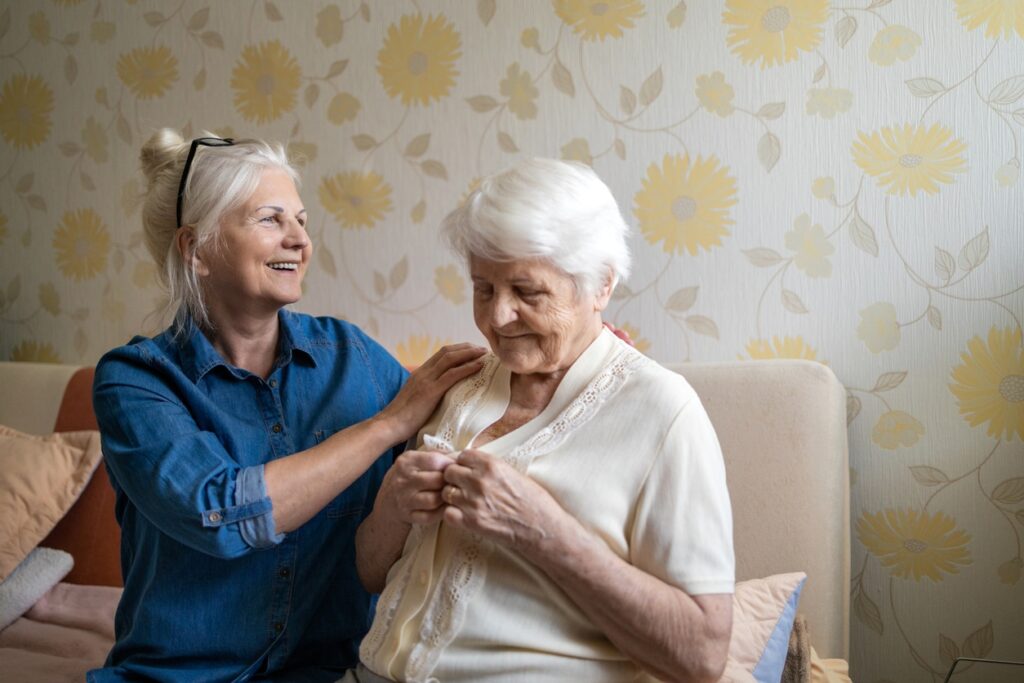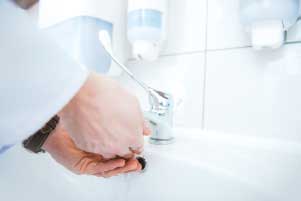The Essential Caregivers Act, which came about earlier this year, was introduced to Congress in June 2021 with bipartisan support. The bill, H.R. 3733 “To amend titles XVIII and XIX of the Social Security Act to require skilled nursing facilities, nursing facilities, intermediate care facilities for the intellectually disabled, and inpatient rehabilitation facilities to permit essential caregivers access during any public health emergency under the Medicare and Medicaid programs” would ensure that in the event of a future Public Health Emergency (PHE), that facilities participating in Medicare and Medicaid would be required to participate in the Essential Caregiver Program outlined by this bill. The intent of H.R.3733 is to ensure that designated essential caregivers are always able to access their loved ones living in nursing homes while still adhering to applicable health and safety protocols. Some states have already mandated requirements such as these, but if passed, this bill would create a national standard.
What is an Essential Caregiver – and Why are They Needed?
Essential Caregivers are defined in the bill as individuals who are designated either by a resident or the resident’s representative (if the resident cannot select one) to have access to a nursing facility in the event of a Public Health Emergency.

Essential Caregivers provide direct care to residents and this care is defined as Activities of Daily Living, emotional support or companionship to the resident.
Throughout the course of the COVID-19 PHE, visitation to nursing home residents was completely restricted at some times, and at others, only permissible under strict circumstances. The lack of visitation has been identified as a source of decreased physical and psychosocial well-being, social isolation and loneliness and other potentially negative outcomes. It was obviously a difficult decision for Federal Agencies to restrict visitation for the safety of nursing home residents (i.e., risk of contracting COVID-19), that ultimately outweighed the potential for other negative outcomes for the residents, but it seems that lessons learned throughout the PHE have highlighted the need for ensuring residents have access to visitors of their choosing.
What Would be Required?
Regardless of a PHE, a nursing facility is still responsible for the health and safety of its residents, so a balance needs to be struck between the need for safety and protection and ensuring residents retain their right to have visitors. Studies have identified that community spread of COVID-19 by asymptomatic individuals was a potential factor in COVID-19 entering nursing homes, so with limited testing capabilities and lack of vaccination, there was a need to try to “keep COVID out” of nursing homes. While we have moved past that critical point and now have come to a point where many people are vaccinated, including nursing home residents, it would be short-sighted to not think that another PHE could require a scenario where the number of individuals entering a nursing home may be limited again, such as with a strong spike in a COVID-19 variant that existing vaccines are not effective against.
The Essential Caregivers Act would allow for two individuals to be designated as an Essential Caregiver by a facility resident during a PHE, who would have the right to access the resident to provide direct care. The Essential Caregivers would be limited to 12 hours of access each day, and if there was an end-of-life situation, the access would be unlimited. These two points would provide clarity to many providers, since States have not always provided required limits on the number of caregivers or the time they can be in the facility, which can be problematic for the providers, given the resources required to provide monitoring of caregivers to ensure compliance with infection control protocols.
H.R.3733 would require that Essential Caregivers follow the same protocols that facility staff follow, which would need to be provided in writing to all involved parties.

This means that providers would need to ensure Essential Caregivers are trained and understand adherence to protocols such as physical/social distancing, appropriate use of Personal Protective Equipment (PPE), other infection control/safety procedures, provision of ADL care/assistance, etc. that are in place at the facility.
The bill states that individuals would only be eligible to participate as Essential Caregivers if they can strictly comply with all facility health and safety standards. It would also require that a nursing home would be required to provide written justification to the resident and caregiver within 24 hours of an Essential Caregiver being denied access to the facility in violation of the program. A process for HHS – and ultimately CMS – to receive and address complaints in a timely manner would also be required. So, this means that nursing homes would need to designate staff to monitor for compliance, as well as implement a system for documenting issues that are identified, as well as ensure timely completion of a written notification for non-compliance should it arise. One more thing to add to the documentation list!
Additional action has not been taken on this item yet – stay tuned.